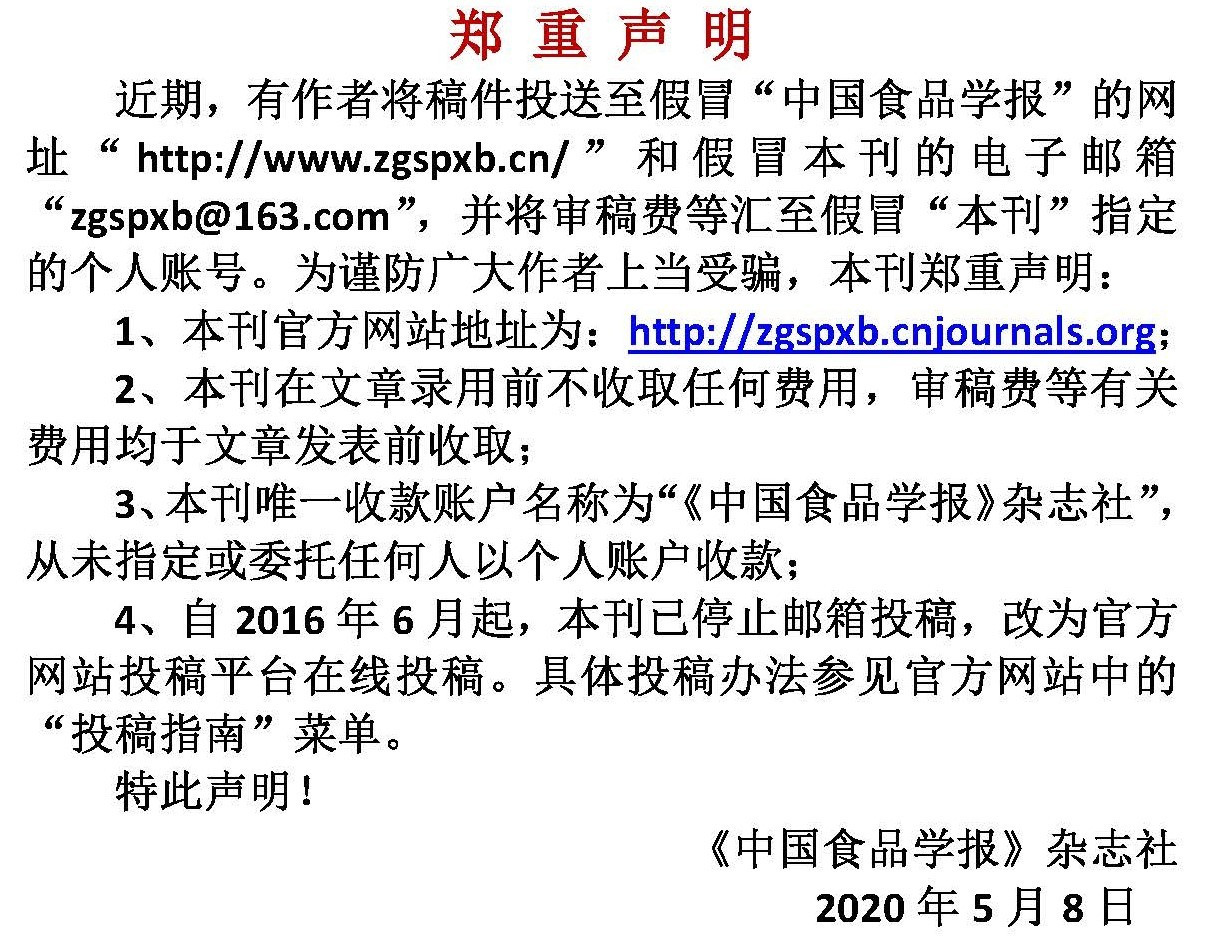蚜虫莫氏黑粉菌产脂肪酶发酵条件的优化
作者:
作者单位:
(河南工业大学粮油食品学院 郑州 450000)
作者简介:
通讯作者:
中图分类号:
基金项目:
国家自然科学基金青年科学基金项目(32100041)
Optimization of Fermentation Conditions for Lipase Production by Moesziomyces aphidis
Author:
Affiliation:
(College of Cereals, Oils and Foodstuffs, Henan University of Technology, Zhengzhou 450000)
Fund Project:
引用本文
纪晨雪,牛永武,许艳华,孙艺铭,杨岩晓,赵仁勇.蚜虫莫氏黑粉菌产脂肪酶发酵条件的优化[J].中国食品学报,2023,23(6):187-202
复制分享
文章指标
- 点击次数:
- 下载次数:
- HTML阅读次数:
历史
- 收稿日期:2022-06-16
- 最后修改日期:
- 录用日期:
- 在线发布日期: 2023-08-17
- 出版日期:
文章二维码

版权所有 :《中国食品学报》杂志社 京ICP备09084417号-4
地址 :北京市海淀区阜成路北三街8号9层 邮政编码 :100048
电话 :010-65223596 65265375 电子邮箱 :chinaspxb@vip.163.com
技术支持:北京勤云科技发展有限公司
地址 :北京市海淀区阜成路北三街8号9层 邮政编码 :100048
电话 :010-65223596 65265375 电子邮箱 :chinaspxb@vip.163.com
技术支持:北京勤云科技发展有限公司
